Diabetes is known as the ‘silent killer.’ In diabetes, blood sugar levels become elevated as the body gradually loses its sensitivity to insulin. As a long-term condition, it often requires lifelong use of prescribed medication. While effective, these treatments can sometimes be associated with side effects and may place a financial burden on individuals8.
Individuals can explore complementary approaches such as acupressure, acupuncture, and naturopathy to support their overall health. Within naturopathy, certain herbs are traditionally used to help maintain healthy blood sugar levels.
Below are a few herbs that may help lower blood sugar and support general well-being as part of a balanced lifestyle, though they should never replace medical treatment without professional guidance1.
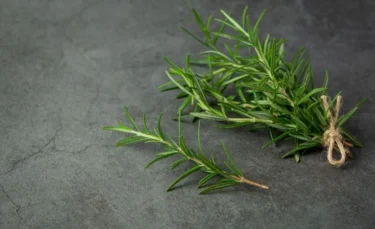
The distinctive aroma found in many soups and curries often comes from rosemary. Traditionally used in cooking and herbal practices, rosemary is believed to support metabolism and may help in maintaining healthy blood sugar levels. Some studies2 also suggest it may contribute to improved cholesterol balance by lowering LDL (bad) cholesterol and supporting HDL (good) cholesterol.
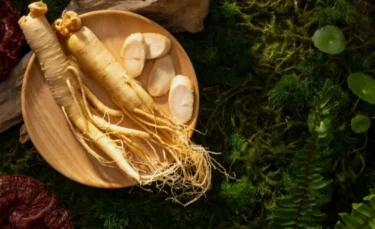
Ginseng has been used for centuries in traditional Eastern medicine. It is known for its immune-supporting properties and has been studied for its potential role in maintaining healthy blood sugar levels. Research suggests that ginseng may help slow the absorption of carbohydrates and support the body’s natural insulin production3.
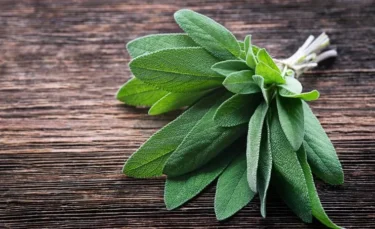
Research4 suggests that sage may help reduce blood sugar levels, particularly when consumed on an empty stomach. Adding sage to the diet may help increase the secretion of insulin and help manage diabetes better. Ginseng is best consumed in the form of tea.
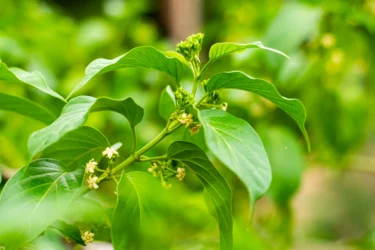
Gurmar has been used in Ayurvedic practices in India for centuries in the management of high blood sugar9. It contains compounds known as gymnemic acids, which may temporarily reduce the ability to taste sweetness, potentially helping to reduce sugar cravings. It is also thought to support the body’s natural processes in utilising excess glucose in the bloodstream.
Those who have diabetes can safely consume jamun as it is low in calories. Additionally, the polyphenolic ingredients present in jamun play a significant role in the treatment of diabetes7.
Dr. M.G. Kartheeka, MBBS, MD (Pediatrics)
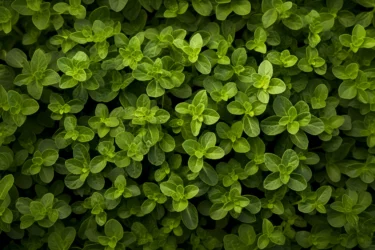
Oregano may offer supportive benefits for those managing high blood sugar. It is believed to encourage pancreatic activity, potentially aiding natural insulin production, and may help reduce cravings for sweet foods. Certain compounds in oregano are thought to support glucose metabolism and reduce carbohydrate formation in the body, while also contributing to overall immune health5.
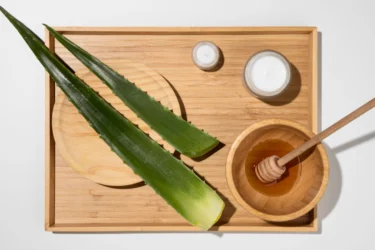
Aloe vera, a fleshy plant widely used in traditional medicine across India, Mexico, Australia, and South America, is known for its soothing and anti-inflammatory properties. It has been used to support digestive health and reduce inflammation, an underlying factor in many chronic conditions, including diabetes3. Read more about the benefits of aloe vera for skin and hair.
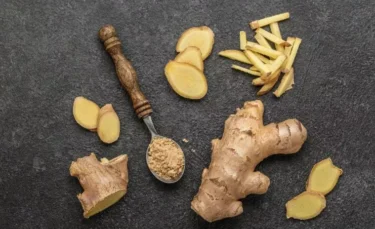
Ginger is used extensively in Chinese and Indian cuisines. This aromatic herb has been used to helps with diabetes as it may increase the sensitivity of the body to insulin and helps in the increase of insulin secretion10.
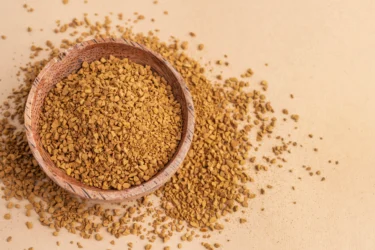
Fenugreek seeds and the herb itself have traditionally been used to support skin and digestive health. It is also thought to aid in managing metabolic conditions, including high blood sugar levels. Some studies suggest that fenugreek may contribute to improved blood glucose c
However, while herbs may help control some symptoms of diabetes, it is important to remember that they cannot cure a person. It is recommended to consult with a doctor before using any herbal remedies, particularly to ensure they are suitable based on your medical history and current treatment. Always use high-quality sources, as poor-quality herbs can be harmful. When used responsibly and under medical supervision, herbs may serve as a supportive complement to prescribed treatment,3.
While home remedies may offer supplementary support, prescribed (allopathic) medicines remain essential in the management of diabetes and in preventing its complications6. It is important to attend regular follow-up appointments, at least annually, with your physician to monitor blood glucose levels and review any ongoing treatment.
Dr. Ashish Bajaj, M.B.B.S., M.D.
Also Read: Mounjaro (Injection): Uses, Side Effects, Dosage, and How It Works
Managing diabetes effectively requires a balanced approach that combines conventional medicine with informed lifestyle and dietary choices. Herbs like rosemary, ginseng, and fenugreek may naturally support blood sugar control. However, they should complement and not replace prescribed diabetes medications. Always consult a doctor before starting any herbal remedies.
1. Aziz N, Wal P, Wal A, S. Saxena M. Evaluation of a Polyherbal Powder for Treatment of Diabetes Mellitus. Indian Journal of Pharmaceutical Sciences [Internet]. 2019 [cited 2025 May 26];81(6). Available from: https://www.researchgate.net/publication/338728855_Evaluation_of_a_Polyherbal_Powder_for_Treatment_of_Diabetes_Mellitus
2. Shawabkeh M, Jamal A. Effect of rosemary on fasting blood glucose, hemoglobin A1c and Vitamin B12 in healthy person and Type 2 diabetic patients taking glucomid or/and metformin. National Journal of Physiology, Pharmacy and Pharmacology [Internet]. 2017 [cited 2025 May 26];1. Available from: https://www.researchgate.net/publication/320698331_Effect_of_rosemary_on_fasting_blood_glucose_hemoglobin_A1c_and_Vitamin_B12_in_healthy_person_and_Type_2_diabetic_patients_taking_glucomid_orand_metformin
3. Choudhury H, Pandey M, Hua CK, Mun CS, Jing JK, Kong L, et al. An update on natural compounds in the remedy of diabetes mellitus: A systematic review. Journal of Traditional and Complementary Medicine [Internet]. 2018 Jul [cited 2025 May 26];8(3):361–76. Available from: https://www.ncbi.nlm.nih.gov/pmc/articles/PMC6035310/
4. Lima CF, Azevedo MF, Araujo R, Fernandes-Ferreira M, Pereira-Wilson C. Metformin-like effect of Salvia officinalis (common sage): is it useful in diabetes prevention? Br J Nutr. 2006 Aug;96(2):326-33. doi:10.1079/bjn20061832. PMID: 16923227. Available from: https://pubmed.ncbi.nlm.nih.gov/16923227/
5. Gutiérrez-Grijalva EP, Leyva-López N, Vazquez-Olivo G, Heredia JB. Oregano as a potential source of antidiabetic agents. J Food Biochem. 2022 Dec;46(12):e14388. doi:10.1111/jfbc.14388. Epub 2022 Sep 13. PMID: 36098212. Available from: https://pubmed.ncbi.nlm.nih.gov/36098212/
6. Kooti W, Farokhipour M, Asadzadeh Z, Ashtary-Larky D, Asadi-Samani M. An update on natural compounds in the remedy of diabetes mellitus: A systematic review. J Tradit Complement Med. 2018 Jul;8(3):361–76. doi:10.1016/j.jtcme.2017.08.012. PMID: 29992107. Available from: https://www.sciencedirect.com/science/article/pii/S2225411017301049
7. Saeed H, Shabbir MA, Rafi A, Din A, Khan MR, Gill P, Afzaal M, Ahmed F, Ahmad MF, Akram N, Hailu GG. Assessment of diabetes mellitus retrieving potential of low caloric Jamun (Syzygium cumini) drink through animal modeling. Food Sci Nutr. 2025 May 5;13(5):e70251. doi:10.1002/fsn3.70251. PMID: 40330204; PMCID: PMC12053304. Available from: https://www.ncbi.nlm.nih.gov/pmc/articles/PMC12053304/
8. Sapra A, Bhandari P. Diabetes. [Updated 2023 Jun 21]. In: StatPearls [Internet]. Treasure Island (FL): StatPearls Publishing; 2025 Jan-. Available from: https://www.ncbi.nlm.nih.gov/books/NBK551501/
9. ScienceDirect Topics. Gymnema sylvestre – an overview. [Internet]. Amsterdam: Elsevier; [cited 2025 Jun 3]. Available from: https://www.sciencedirect.com/topics/medicine-and-dentistry/gymnema-sylvestre
10. Li Y, Tran VH, Duke CC, Roufogalis BD. Preventive and protective properties of Zingiber officinale (ginger) in diabetes mellitus, diabetic complications, and associated lipid and other metabolic disorders: a brief review. Evid Based Complement Alternat Med. 2012;2012:516870. doi:10.1155/2012/516870. Epub 2012 Nov 22. PMID: 23243452; PMCID: PMC3519348. Available from: https://pmc.ncbi.nlm.nih.gov/articles/PMC3519348/
Disclaimer: The information provided here is for educational/awareness purposes only and is not intended to be a substitute for medical treatment by a healthcare professional and should not be relied upon to diagnose or treat any medical condition. The reader should consult a registered medical practitioner to determine the appropriateness of the information and before consuming any medication. PharmEasy does not provide any guarantee or warranty (express or implied) regarding the accuracy, adequacy, completeness, legality, reliability or usefulness of the information; and disclaims any liability arising thereof.